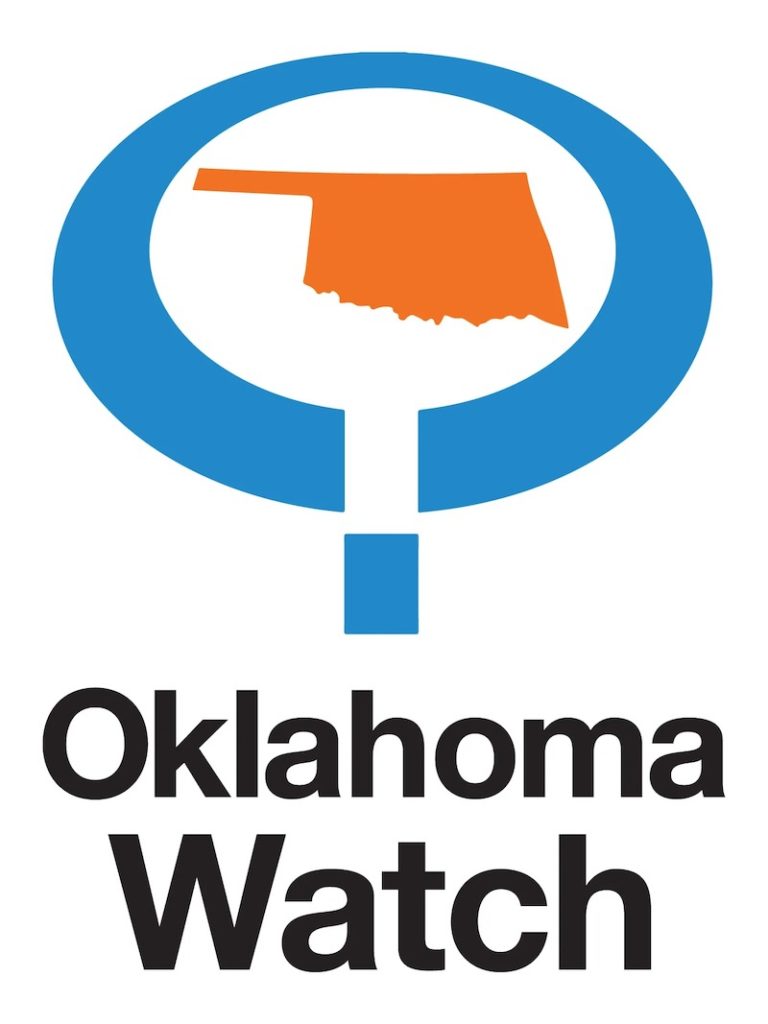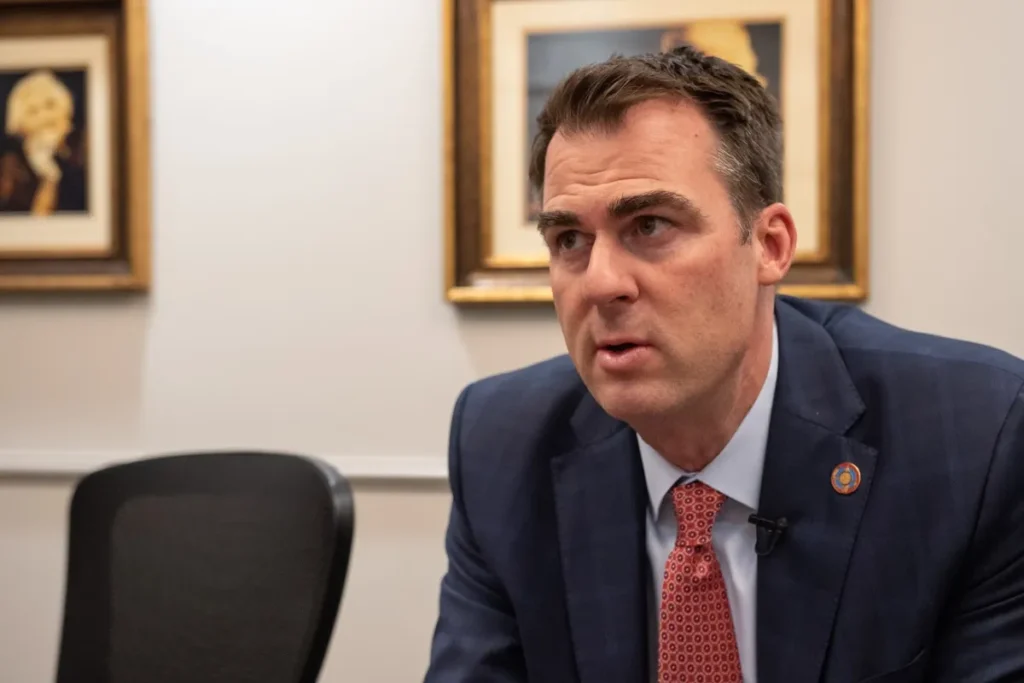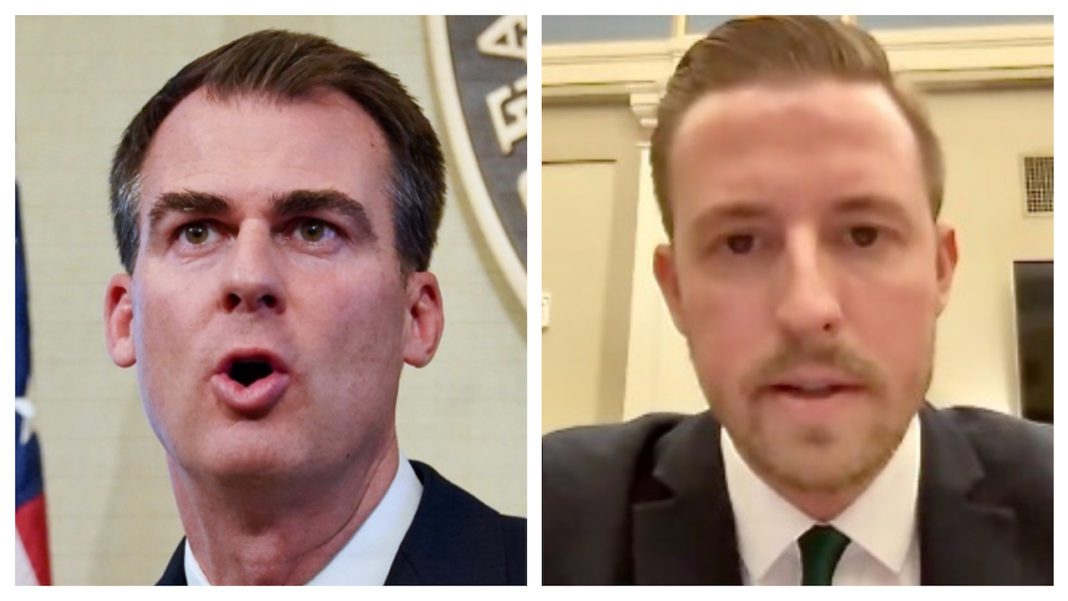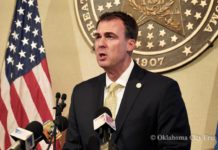Last Updated on August 6, 2023, 9:19 PM | Published: June 27, 2023
OKLAHOMA CITY (State Capitol) — A private school voucher program funded with federal pandemic relief dollars selected schools for preferential treatment, awarded funds to families not facing financial hardship, and then ran out of funds that could have been used by families that were, according to an audit released Tuesday.
Of the $10 million Gov. Kevin Stitt allocated to the Stay in School program, $6.5 million didn’t align with the program’s purpose, which was to help families impacted financially by the pandemic continue to send their children to private school.
Auditors found five private schools were given early access to apply before the program went live. One school received $6,000 per student and the others collected the full amount of $6,500 per student, even though the program was supposed to pay families’ actual tuition costs and some of those schools don’t charge tuition.
The audit examined $14 billion in federal dollars spent in fiscal year 2021, which includes an influx of pandemic relief aid in the second half of 2020. Auditors found $29.3 million didn’t align with the program’s purpose. The $6.5 million from Stay in School represents one of the largest.
The audit also found:
• $12.2 million in CARES Act is questionable because the state couldn’t document the payments were made for COVID-19-related expenditures;
• $1.6 million in excessive administrative costs to an Oklahoma City foundation administering the emergency rental assistance program;
• $1.8 million for the Bridge the Gap Digital Wallet program, mostly spent by participants on items that were not educational.
Federal dollars spent incorrectly could have to be repaid to the federal government.
“If the federal government decides the state must pay back these questioned costs, you and I will end up paying the bill. If that happens, gross mismanagement and lack of compliance and oversight will be to blame,” Byrd said in a written statement.
Stay in School
A special interest group, Libertas Consulting, selected the five schools given preferential treatment. Though unnamed in the audit, the president of Libertas Consulting is Jennifer Carter, who is also the senior advisor for the American Federation for Children in Oklahoma and served as campaign manager and chief of staff for former state Superintendent Janet Barresi.
Carter was given the authority to choose the direction of the program even though she didn’t have a contract with the state.
The audit doesn’t identify the schools, but data obtained by Oklahoma Watch in 2021 shows the top five recipients are:
- Cristo Rey Oklahoma City Catholic High School, ($780,000);
- Christian Heritage Academy in Del City ($591,500);
- Crossover Prep Academy in Tulsa ($526,500);
- Bishop McGuinness Catholic High School in Oklahoma City ($403,000); and
- Bishop Kelley High School in Tulsa ($323,950).
It’s unknown if these are the five schools given preferential treatment.
Bridge the Gap Digital Wallet
Bridge the Gap provided $1,500 grants to low-income families to buy educational materials such as computers and books. Some bought smartphones, TVs, video game consoles, Christmas trees and barbeque grills, among other items.
An investigation by Oklahoma Watch and The Frontier in 2022 revealed misspending, but Byrd’s audit said the scope is even larger at $1.7 million.
Oklahoma contracted with Florida-based ClassWallet to manage Stay in School and Digital Wallet. The state filed a lawsuit against ClassWallet in 2022 but Attorney General Gentner Drummond dismissed the case in January, saying the company isn’t in the wrong and the investigation should focus on “state actors” instead.
Asked for Walters’ response to the audit, Press Secretary Justin Holcomb said ClassWallet should work with the federal government to recover any misused funds. A spokeswoman for the governor, Kate Vesper, echoed his statement, saying the vendor should be held accountable and the auditor’s report supports that.
CARES Act spending
The audit said more than $11 million in pandemic spending under the 2020 federal CARES Act didn’t have supporting documentation or proof that the supplies or equipment had been received.
The governor’s office, through its CARES Forward team, directed much of that spending by setting up a scoring matrix for projects in consultation with cabinet secretaries and agency directors. The audit said its sample of reimbursements to agencies also showed possible overspending of $101,200 on COVID-19 tests. It also found a duplicate payroll reimbursement to the Department of Veterans Affairs of more than $594,000 in December 2020.

“Without maintaining project score sheets or having written procedures on how the projects were approved, we are unsure if some projects had been properly reviewed and approved by the steering committee and the governor,” the audit said. “In addition, CARES Forward may have reimbursed unallowable costs by not performing an adequate review of the supporting documentation and instead relied on the attestation and reimbursement request for their support.”
In response to the finding, the Office of Management and Enterprise Services said it created a Grant Management Office in June 2021 to better track and review federal grant money.
State agencies received a total of $850 million in CARES Act funds under that first round of coronavirus relief from the federal government. Because the CARES Act money was spent in multiple state fiscal years, some of that spending has already been flagged by auditors or investigators in previous reports.
The Legislature was largely cut out of directing any of the CARES Act funds in the first phase of the pandemic. That led it to reassert its authority when the federal government sent more than $1.87 billion in American Rescue Plan Act funds to the state. Lawmakers spent last summer vetting projects and have now allocated almost all of that money under that federal pandemic relief funding.
House Speaker Charles McCall, R-Atoka, said Tuesday his cursory examination of the single audit report was “extremely troubling.”
“The findings in the report show a pattern of irresponsible spending and questionable decision-making that was not in the best interest of the Oklahoma taxpayer,” McCall said in a press release. “The Legislature was excluded from the appropriations process for these funds. The decisions on how and where to spend them was made unilaterally by the executive branch, resulting in little oversight and the documented misuses of taxpayer money.”
Emergency Rental Assistance
The state auditor revealed $1.6 million in overcharges and overpayments by an Oklahoma City foundation tasked with distributing emergency rental assistance, resulting in fewer eligible Oklahomans getting the help they needed to avoid eviction.
“During the audit period, the OKC foundation charged the ERA program $1.6 million dollars in excessive management fees that were not needed for the administration of the grant,” reads the state auditor’s press release, “Because of the administrative overcharge, many Oklahomans who applied for ERA awards were denied assistance because the unallowable charges were kept by the OKC foundation.”
The cause of the misspent funds, according to the audit, was a lack of experience in handling federal grants by the state’s CARES Forward program team, which led to inadequate oversight of the two nonprofits designated to distribute the federal relief dollars: Communities Foundation of Oklahoma in Oklahoma City and Restore Hope Ministries in Tulsa.

The state failed to properly monitor the distribution of funds to the two nonprofits and provided them with advanced payments based on expected rental and utility costs. It also provided advanced payments to the nonprofits at a fixed rate of 9.3% of the program’s total funds for administrative costs, instead of paying them based on the amounts that appeared on reimbursement forms.
The audit points out that an executive director and chief operating officer used personal credit cards to make purchases and approved their own reimbursement claims without state or federal approval.
Oklahoma Watch sought comment from Teresa Rose, executive director of Communities Foundation of Oklahoma and former executives with the now-disbanded Community Cares Partners. None were available at publication.
The state auditor reviewed 63 of the 12,877 total applications for rental and utility assistance and 88 of 171 non-payroll administrative payments recorded by Communities Foundation of Oklahoma. The audit identified $1,637,765 misspent dollars by the Oklahoma City nonprofit:
- $1,563,028 were spent in prohibited management fees not attributable to providing financial assistance to Oklahomans in need.
- $66,113 were spent in never-recouped overpayments to Oklahomans who received relief payouts inconsistent with their eligibility.
- $5,665 were spent on prohibited costs for entertainment, gifts, gift cards, inappropriate bonuses and personal items.
The state auditor’s office recommended the CARES Forward team establish a system to properly monitor and distribute rental assistance and warned that if the issues outlined in the audit are not fixed, the amount classified as overcharged could increase to $15 million.
Published in partnership with Oklahoma Watch under Creative Commons license. Free Press publishes this report as a collaborative effort to provide the best coverage of state issues that affect our readers.













